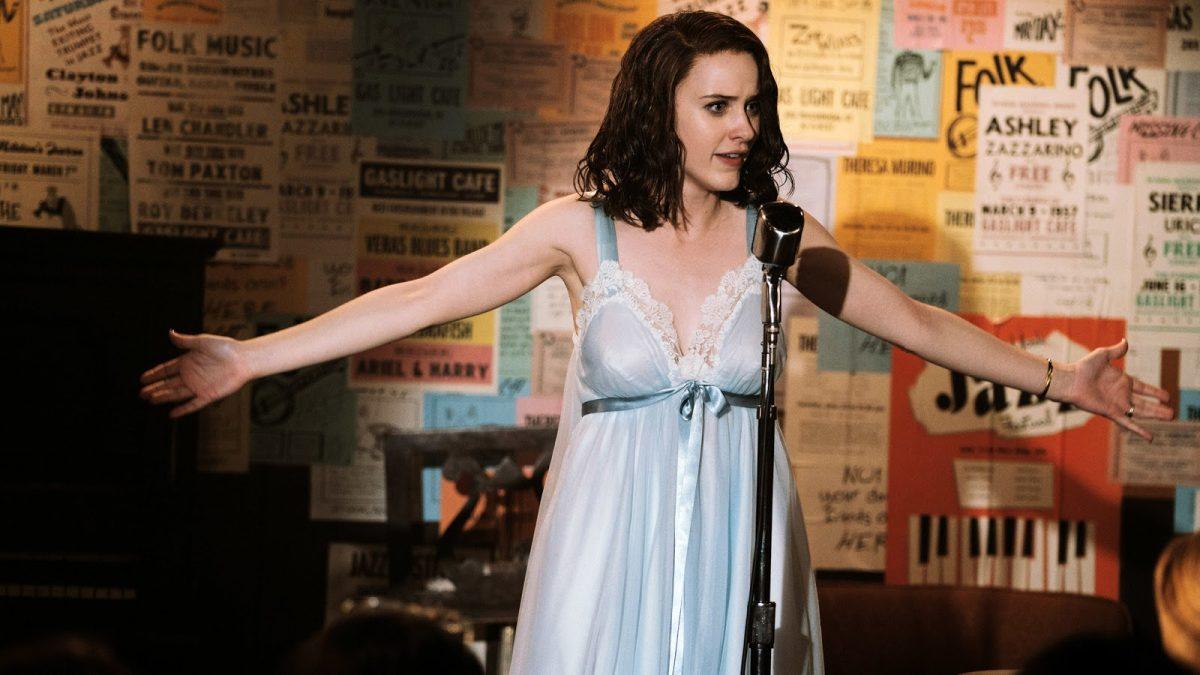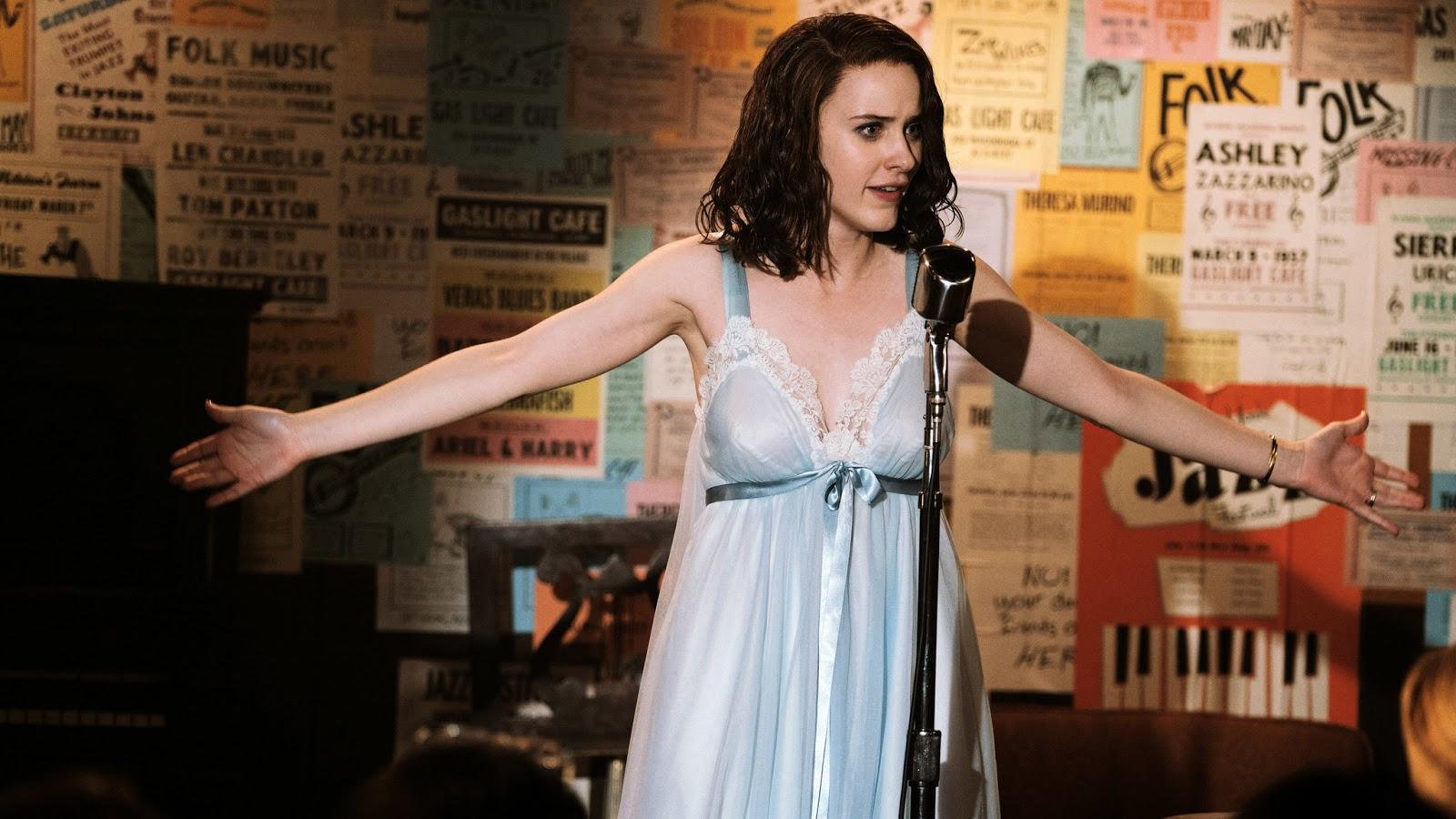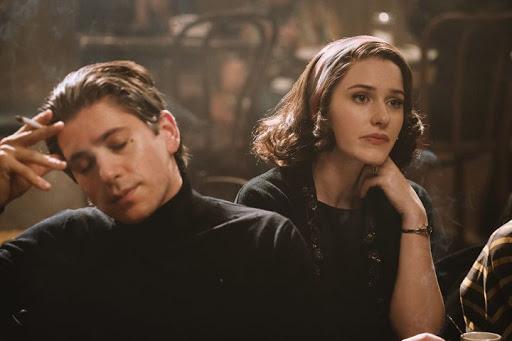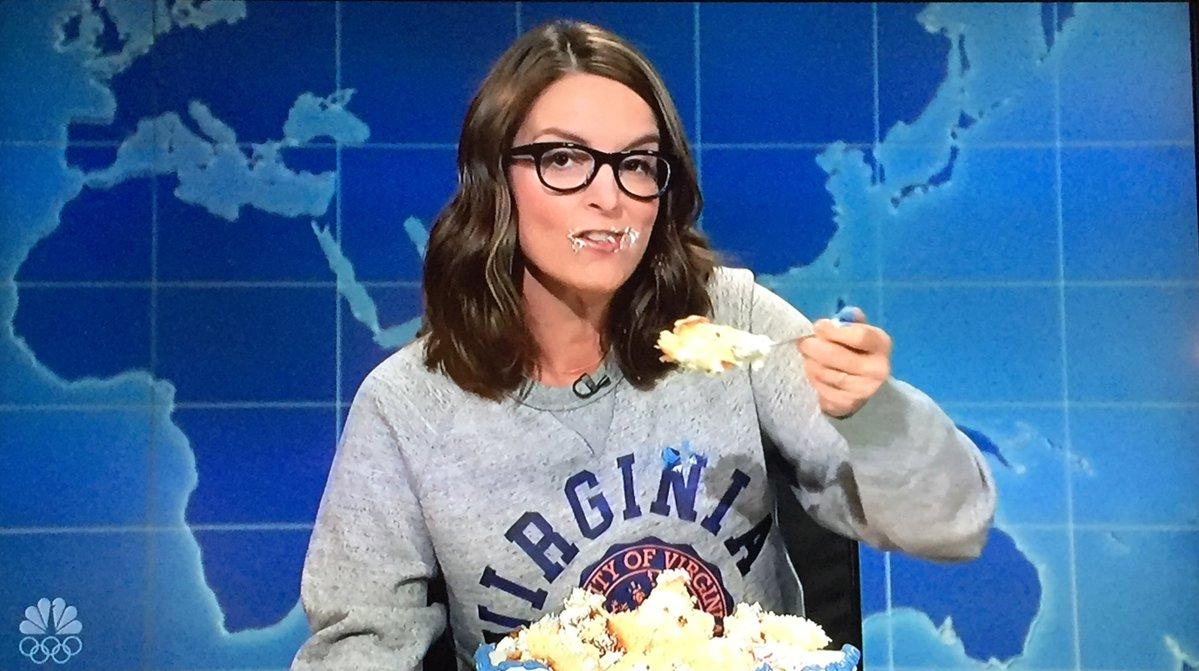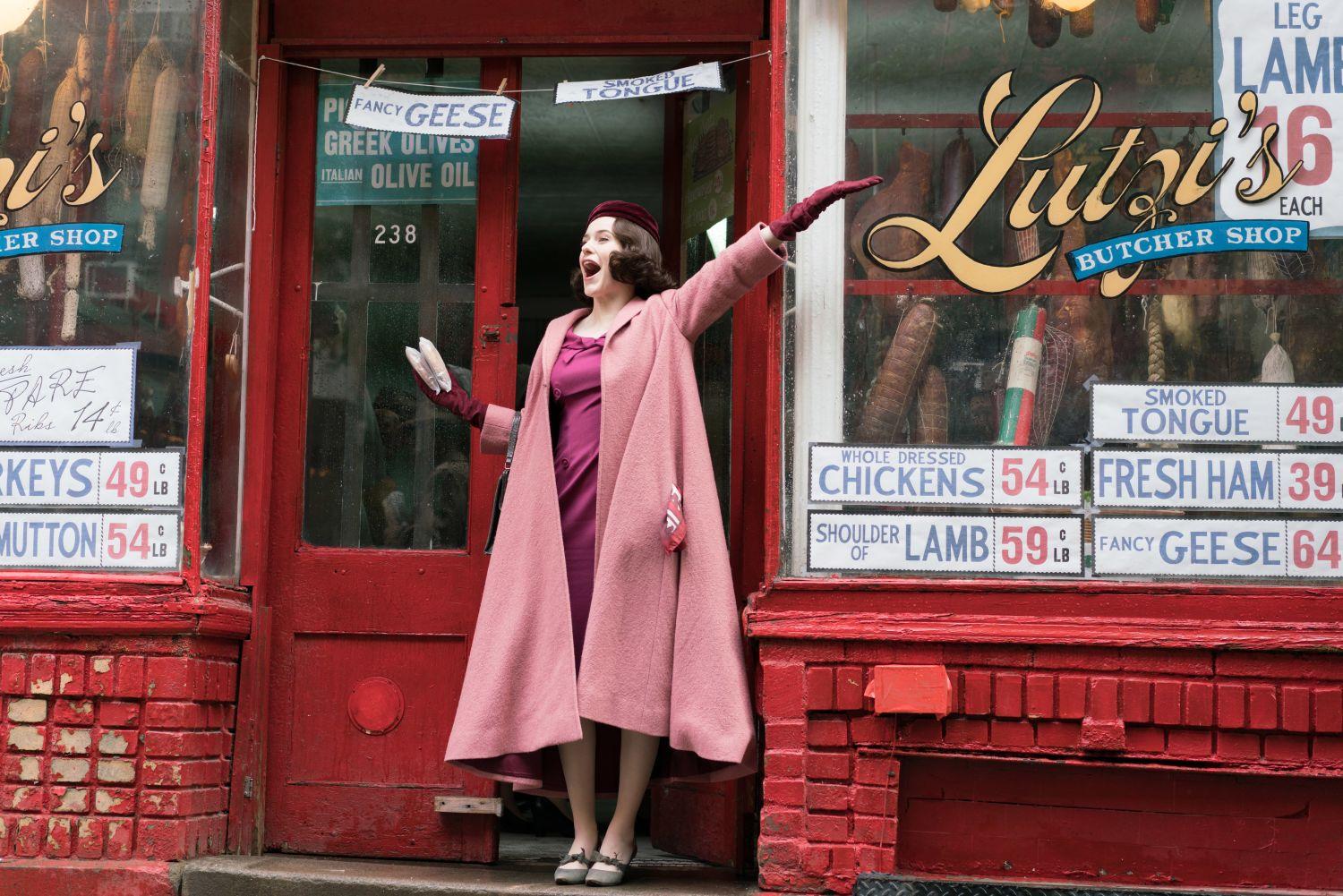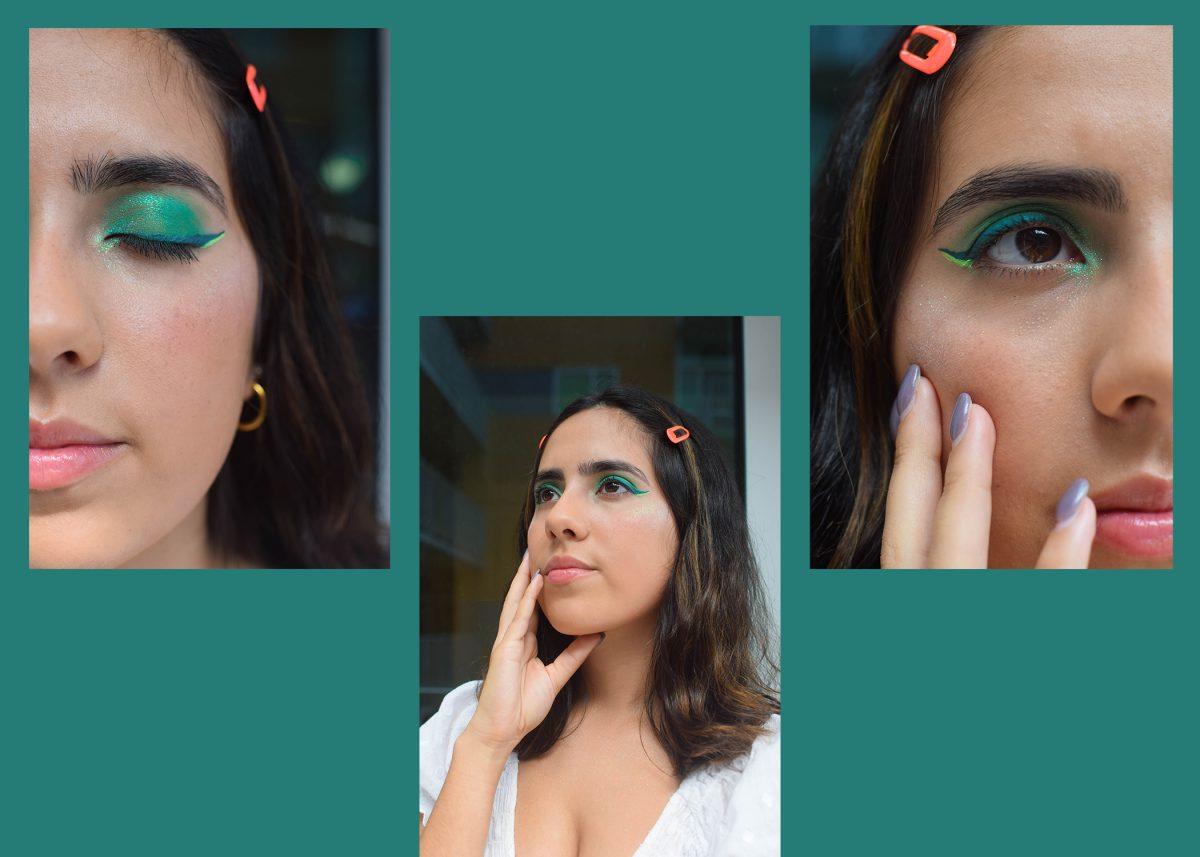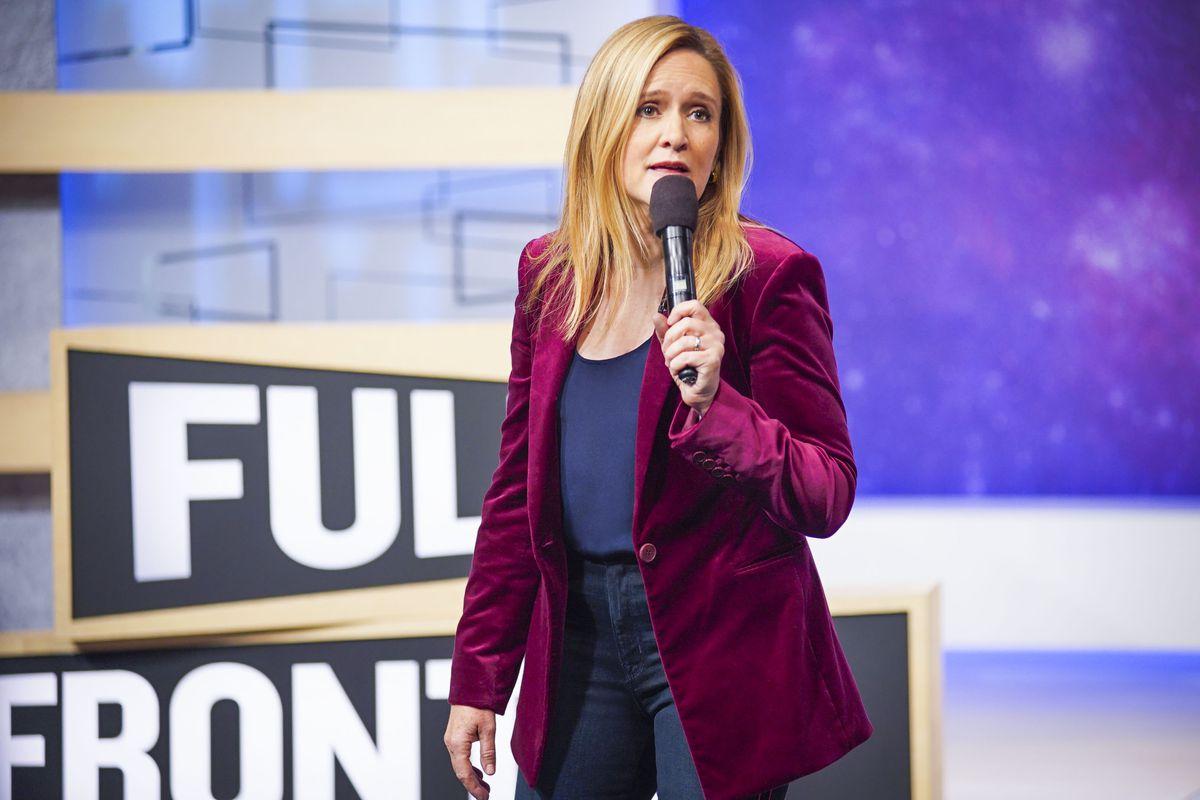Photo courtesy of Amazon
Those of us who grew up on Gilmore Girls are all but too familiar with the sharp verbal wit of Amy Sherman-Palladino. While Gilmore Girls utilizes this dialogue to supplement and accentuate the main characters and their quirks, Amazon’s Golden-Globe winning series, The Marvelous Mrs. Maisel (2017), takes this unique rapid-fire, clever spoken word and places it at the very center of the plot.
Story by Swetha Berana
Miriam “Midge” Maisel (played by House of Cards’ Rachel Brosnahan), a young Jewish housewife, seems to have it all (at least to the typical woman of the era). She is married with two children to a relatively well-off businessman and aspiring standup comedian, Joel (Michael Zegen). Her supportive upper middle-class parents (Tony Shalhoub and Marin Hinkle) also live with the couple in the same massive apartment complex in a wealthy part of Manhattan. And she doesn’t take all of this for granted: the pilot episode introduces Midge as the textbook 50’s dreamwife, cooking “bribe” brisket to get Joel a better performance slot at the Gaslight Pub, ardently taking her three measurements every morning (she has stayed exactly the same, even after two kids!), waking up an hour early to undergo her cold cream beauty routine and getting back in bed so that Joel wakes up to a perfectly made-up face.
However, things come to a head when Midge hears another comedian “repeating Joel’s jokes”, eventually realizing that Joel’s the one who’s been pirating. The last straw is when she catches him cheating on her with his secretary (really?). In a drunken stupor, Midge goes back to the Gaslight Pub and pours her heart out to a confused audience. Unlike her husband’s canned “jokes,” her rant is not only completely heartfelt, but it’s original, audacious, and generates many a laugh (and a raised eyebrow) from the crowd. When she’s arrested for baring her breasts onstage she finds herself in a police car with none other than New York comedy veteran Lenny Bruce, with whom she strikes a kinship. Though he warns her that the comedy business is terrible, and the road ahead will be especially tough for a woman, Suzie Myerson (played by Alex Borstein of Shameless and Gilmore Girls), the owner of the Gaslight Pub, convinces Midge that she has real comedic talent and agrees to become her manager.
Photo courtesy of Amazon
The rest of the episodes deal with Midge’s comedic journey, interwoven with some more serious narrative bits centering on her relationship with Joel and finding her self worth in something other than her husband’s eyes. While the trope of Midge being a “comedic genius” is sometimes overplayed and the humor that has New Yorkers in the fifties rolling their cigars with laughter only has us mildly amused, this can be taken with a pinch of salt as “generational” humor — someone living in Manhattan in 1958 would no doubt be confused by how hilarious the present Z generation finds memes. Interestingly, this helps us shift the focus from the humorous aspect of the show to the wider messages the plot conveys. The show is refreshing and timely as several present day male comics are under serious accusations of sexual assault. It raises the question of why, for so many years, we’ve been looking to guys to do the funny stuff.
One of the biggest unanswered questions we often ask ourselves is “why aren’t there more funny women?” Many famous female comics are typecasted and have to carve a niche for themselves in order to generate laughs. Even then, their audience is nowhere near as widespread and diverse as that of a male comic. As notable social commentator Christopher Hitchens wrote in Vanity Fair in 2007, “There are more terrible female comedians than there are terrible male comedians, but there are some impressive ladies out there. Most of them, though, when you come to review the situation, are hefty, or dykey or Jewish or some combo of the three.” As offensive and subjective as this may sound, the reality is that this view mirrors that of America’s as a whole.
Even while looking at the highest-paid female comics, many of them are frequently accused of “not being funny” or “stealing jokes”. Comedic ensembles often feature the “token woman”, who is expected to represent all women. Paradoxically, they aren’t funny enough unless they establish an often hypersexualized or exaggerated role. But in this case, they’re criticized for not “representing women as a whole.” Meanwhile, both cinema and society feature several men who are effortlessly funny. Part of this stems from the intrinsic psychological expectations we have ingrained for each gender. Humor, for as long as it has existed, shows confidence and intelligence, traits historically ascribed to men. Despite our societal improvements, the message to women, often from birth, is to be attractive to men — god forbid being funny, bossy, obnoxious or ambitious. Additionally, much of this bias directly translates to female confidence and success in the classroom from an extremely young age building up to college and careers. A confidence-related Carnegie Mellon study revealed that men negotiate for higher pay four times more than women do, and women who negotiate tend to ask for 30 percent less money, indicating that often, for the exact same work, women don’t believe in their own capabilities to match their male peers’ performance. This extends to women in business, STEM, and of course, entertainment.
Women’s confidence in their own capabilities is further undermined by the fact that many men do not find it “comfortable” to share a stage with a woman, believing that a woman’s place is in the supportive audience. Both young boys and girls are not exposed to funny women at a young age, and a result, grow up associating comedy with one type of person (read: one gender, one race, and one sexual orientation).
Photo courtesy of Saturday Night Live
“Sheet-caking is a grassroots movement [against Neo-Nazis]. Most of the women I know have been doing it once a week since the election.” -Tina Fey, Weekend Update
We have seen the comedy scene improve tremendously over the last decade and especially since the ‘90s, with the arrival of Tina Fey on the cast of Saturday Night Live, which set a chain-reaction of female empowerment in comedy. She didn’t exactly have the easiest time adjusting, either. In the writing room, she was called an offensive slur by a costar (inciting the creation of “The C-Word”, one of the most famous episodes of her show, 30 Rock). In her memoir, Bossypants, Fey details how being a woman in entertainment often meant trying to fit a “looks-based” role, which she struggled with. She says people always ask her, “Isn’t this an amazing time for women in comedy?” Her response: “It’s a terrible time. The boys are still getting more money for garbage, while the ladies are hustling and doing amazing work for less.”
Midge Maisel, similarly, faces the Twitter trolls of the fifties: misogynistic audience hecklers. She faces some hiccups, but always emerges unfazed with immaculately done lipstick and a perfectly crafted one-liner which sums up many of our moods when she proves yet another disbeliever wrong. Brosnahan reveals that one of her inspirations was the iconic Joan Rivers, whom the actress said shares some similarities with Midge, though the two approach comedy in different ways. In the wake of Rivers’ passing, The Marvelous Mrs. Maisel honors her legacy. “Joan’s comedy came from a place of feeling like she never belonged. She always referred to herself as the ugly duckling,” Brosnahan says. “Midge is the opposite. She knows she is beautiful; she knows she is great at what she does, and she will be the first to tell you about it.”
In a way, Midge is the antiheroine of the traditional, male-dominated comedic world. Let’s raise boys and girls, today and tomorrow, to embrace being anti-status quo. Let’s raise them both to not shy away from exemplifying a certain characteristic because “boys don’t” or “girls don’t” act that way. Let’s raise them to believe that humor, along with confidence and intelligence, isn’t something that’s expected of a specific person because of who they are — it is something we can each find within ourselves.
Photo courtesy of Amazon
If you haven’t yet, give the show a watch on Amazon Prime.































